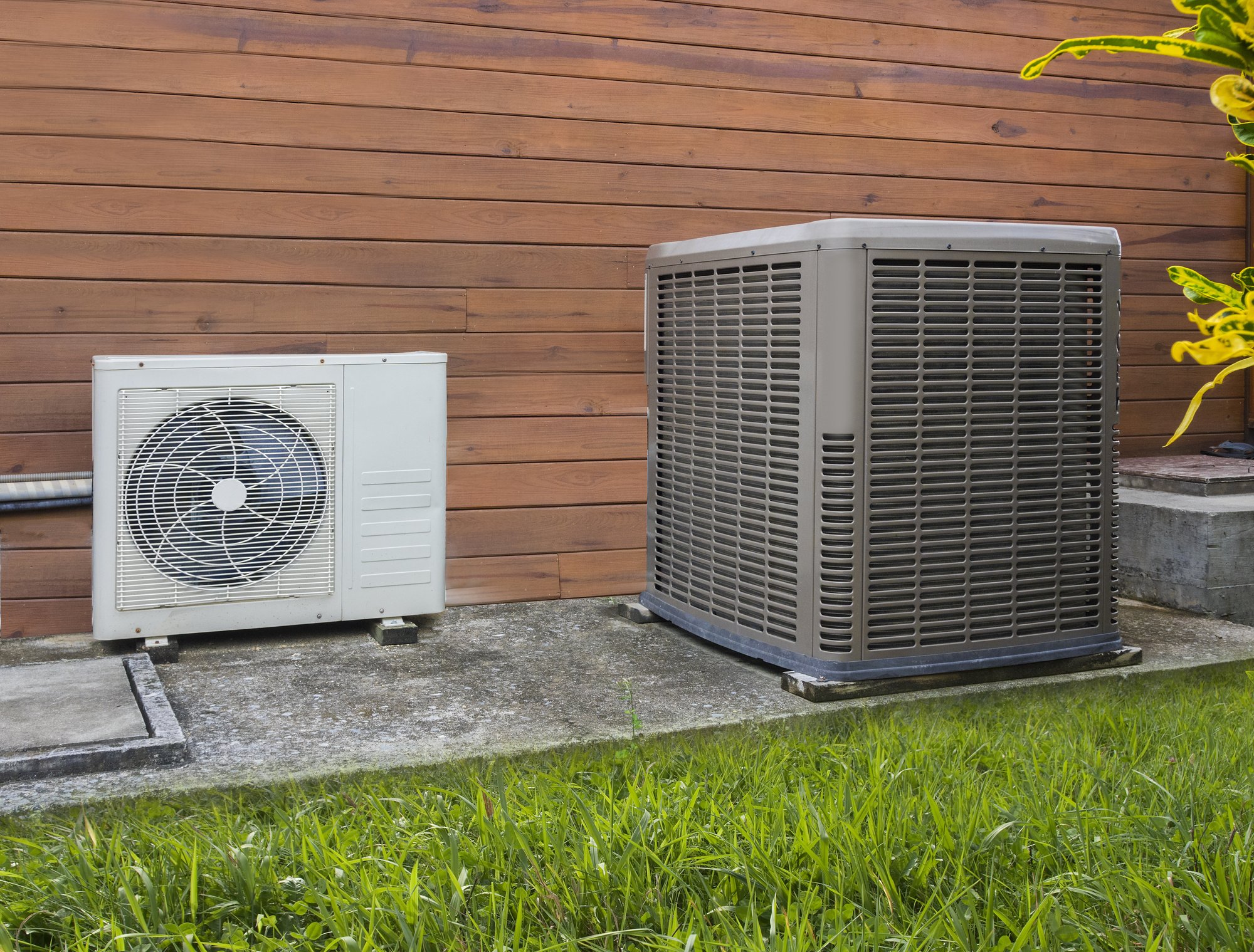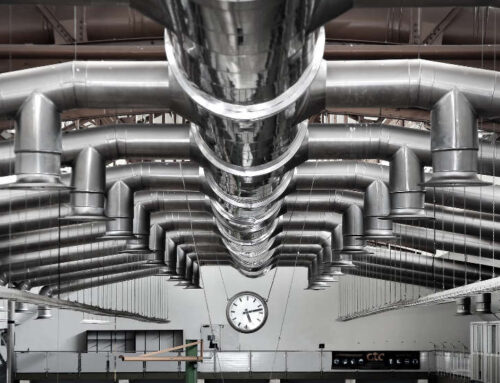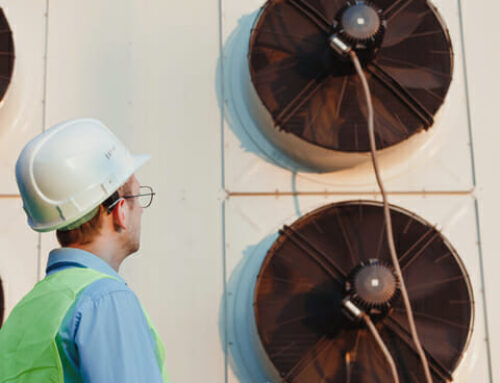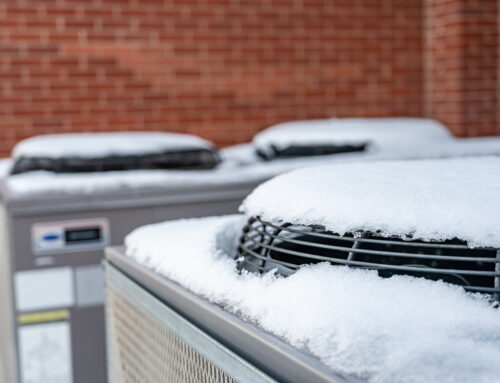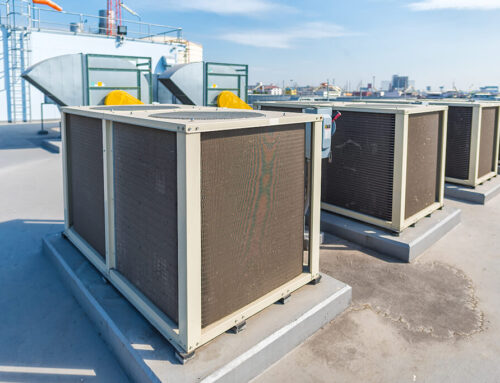Ever wondered whether indoor or outdoor HVAC units are the better fit for your commercial buildings, considering humidity and windows? Navigating the maze of commercial heating, ventilation, and air conditioning (HVAC) options, including outdoor units and humidity control, can feel like a daunting task. Understanding the pros and cons of indoor versus outdoor units for a new HVAC system, particularly regarding humidity control, is crucial in making an informed decision that aligns with your commercial buildings’ needs.
Differences Between Indoor and Outdoor Commercial HVAC Units
Sound Levels
Indoor units, crucial for commercial HVAC in commercial buildings, are often the go-to for businesses that prioritize a quiet environment and control over humidity with a new HVAC system. They’re typically quieter than their outdoor counterparts. This is because they’re housed within home and commercial HVAC buildings, shielding them through windows from direct exposure to the noisy outside world and the outdoor unit.
Outdoor units of commercial HVAC systems, on the other hand, can be quite loud at home. Their operation noise in commercial HVAC outdoor units is more noticeable since there’s nothing in the home to muffle it. Businesses near residential home areas or those requiring a serene atmosphere might find the noise from commercial HVAC outdoor units problematic.
Space Requirements
Outdoor units demand more space. They sit outside commercial and home buildings, taking up valuable real estate that could be used for other purposes, including outdoor units of commercial HVAC systems. This need for space makes commercial HVAC units less ideal for businesses operating in cramped urban settings or homes.
Moreover, being outdoors exposes these commercial HVAC units to all weather conditions—rain, snow, sun—which can lead to wear and tear over time. Despite this vulnerability, their exterior placement does offer one advantage: it keeps the heat and noise generated by the unit outside of your business premises.
Maintenance Accessibility
Some building designs make indoor HVAC unit systems easier to access for maintenance tasks. Technicians can reach these units without having to step outside, which is particularly beneficial during bad weather conditions or in high-security areas where outdoor access might be restricted.
However, not all buildings benefit from this setup; some may actually present challenges that complicate maintenance efforts for indoor systems compared to outdoor ones.
Pros and Cons of Indoor HVAC Systems
Less Vandalism
Indoor HVAC systems are protected. They face less risk from vandalism or weather damage. This is a big pro.
They last longer because they’re not outside. Rain, snow, and extreme temperatures can harm outdoor units. But indoor ones stay safe inside.
Space Trade-off
However, these systems have cons too. They take up space indoors that could be used for other purposes.
This might not be ideal in small buildings where every inch counts. Finding room for the system becomes a challenge.
Aesthetic Integration
Another advantage is how well they blend with building designs. It’s easier to hide or incorporate them into the interior aesthetics.
This means no unsightly equipment outside your building. Everything looks neat and planned from the start.
Pros and Cons of Outdoor HVAC Systems
Space Savings
Outdoor HVAC systems offer a significant advantage by freeing up valuable indoor space. This is especially beneficial in commercial buildings where every square foot counts. Instead of allocating a large area for the HVAC unit, businesses can use this space for other purposes, such as additional office space or storage.
However, positioning these units outside exposes them to various environmental factors. They are more susceptible to weather damage from storms or extreme temperatures. Also, there’s an increased risk of theft or vandalism when units are easily accessible from the ground level.
Installation Ease
One notable pro of outdoor HVAC systems is their potentially easier and cheaper installation process compared to indoor alternatives. Since they require less structural integration with the building, the setup can be straightforward and less disruptive to daily operations.
-
Pros:
-
Frees up indoor space.
-
Potentially easier and cheaper installation.
-
Cons:
-
More vulnerable to weather damage.
-
Higher risk of theft.
This simplicity in installation does not only save time but also reduces initial costs involved in integrating these systems into commercial spaces. However, it’s crucial for businesses to weigh these benefits against the potential long-term challenges posed by external elements and security concerns.
Factors Affecting Commercial HVAC System Design
Building Size
The size and layout of a building are crucial. They directly influence the type and placement of HVAC systems. Larger buildings may require more robust systems or multiple units to ensure even temperature control.
For instance, a sprawling shopping center needs a different approach than a compact office building. The former might benefit from several outdoor units, while the latter could use fewer, possibly indoor ones.
Local Climate
Local climate plays a significant role in system design. It dictates the heating and cooling load requirements. Areas with extreme temperatures need systems that can handle heavy usage without breaking down.
Consider how an HVAC unit in Florida faces different challenges than one in Alaska. The former must excel in cooling, whereas the latter prioritizes heating efficiency.
Energy Goals
Energy efficiency goals are also key factors. They can determine which system is chosen for commercial spaces.
-
Pros: Lower energy bills, reduced carbon footprint
-
Cons: Higher upfront cost for more efficient units
Businesses aiming to reduce their environmental impact might opt for newer technologies like geothermal heat pumps despite higher initial costs.
Ideal Applications for Indoor and Outdoor HVAC Units
Space Considerations
Indoor HVAC units work well in tight spots. They’re perfect for buildings with little room outside. Think about city offices or shops. These places often have no space for big outdoor systems.
Outdoor units are different. They fit best in large areas where there’s plenty of room to spare. Big commercial spaces like warehouses benefit from these systems. There’s enough space outdoors, so the unit doesn’t take up valuable indoor area.
Aesthetic and Noise
Some businesses care a lot about how things look. For them, indoor HVAC units are great because they can be hidden from view. This keeps the building looking nice and tidy.
But, there’s a trade-off: noise might be more noticeable indoors than outdoors.
Outdoor units solve this problem by being far away from people’s ears. Places like factories don’t worry much about noise anyway.
Mixed-Use Solutions
Sometimes, a mix is best. Mixed-use developments need both indoor and outdoor solutions.
For example, retail spaces might use indoor units for less noise inside shops while apartments above use outdoor ones to save space.
Importance of Proper Maintenance for Commercial HVAC
Lifespan Extension
Regular maintenance is crucial. It helps your commercial HVAC system last longer. Without it, systems break down faster.
A well-maintained unit can serve you years beyond its expected lifespan. Think about the savings in not having to replace units frequently.
Breakdown Prevention
Unexpected breakdowns are a headache. They disrupt business and cost money. Regular checks keep these surprises at bay.
By identifying issues early, you avoid big repairs later on. This means less downtime and more productivity for your business.
Efficiency and Performance
An efficient HVAC system saves energy and money. Maintenance ensures this efficiency doesn’t drop over time.
Optimal performance also means a comfortable environment for everyone inside the building. Happy employees and customers often lead to better business outcomes.
Significance of a Qualified Commercial HVAC Contractor
Expertise Matters
Hiring a qualified commercial HVAC contractor is crucial. They bring expertise in system design. This ensures your system runs efficiently and reliably.
A well-designed system saves energy. It also prevents frequent breakdowns. Experts know how to tailor the HVAC system to your building’s specific needs.
Proper Installation
Installation quality affects longevity. A skilled contractor guarantees proper installation.
Improper installation can lead to numerous problems. These include increased energy consumption and early system failure. A professional will ensure that doesn’t happen.
Maintenance Advice
Qualified contractors offer valuable maintenance tips. Regular maintenance keeps the system running smoothly.
They can spot potential issues before they become major problems. This advice saves money on repairs in the long run.
When to Consider HVAC Replacement for Commercial Spaces
Aging Systems
Older HVAC units often break down. They need lots of repairs. This costs money and time.
Replacing them can save both in the long run. New systems are more reliable and efficient.
Rising Bills
Energy bills that keep going up are a red flag. It means your current system is not efficient.
Upgrading to a newer model can lower these costs significantly. Modern units use less energy to operate.
Expansion Needs
Remodeling or expanding commercial buildings changes heating and cooling needs. The old HVAC might not be enough anymore.
Assessing the current system’s capacity is crucial before making changes. Sometimes, an upgrade or replacement is necessary to meet new demands.
Summary
Choosing between indoor and outdoor commercial HVAC units boils down to your specific needs, the layout of your space, and how much you’re willing to invest in installation and maintenance. Indoor units keep a low profile and are great for tight spaces without much exposure to the elements, but they might cost you more in installation and upkeep. Outdoor units, on the other hand, are the heavy lifters that can handle almost anything Mother Nature throws at them, often with a lower upfront cost but potentially higher operational expenses due to environmental wear and tear. It’s like deciding between a Swiss army knife and a sledgehammer—both tools have their place, depending on the job at hand.
Don’t let the HVAC hustle leave you sweating more than your system; reach out to a pro who can help you weigh the pros and cons based on your unique situation. Remember, a well-chosen HVAC system isn’t just about comfort; it’s an investment in your commercial space’s future. So, why not make that call today and start breathing easy?

